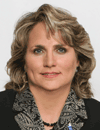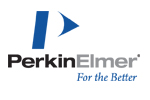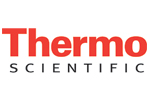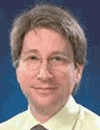08:00 | Registration |
|
Session: Cord Blood Banking |
| |
09:00 |  | Keynote Presentation Umbilical Cord Blood Collection, Processing and Storage
Mary-Beth Fisk, President & COO, South Texas Blood and Tissue Center, United States of America
Objectives are to review methods for umbilical cord blood processing and cell isolation. Define technologies for cryoprotection, freezing and storage of cells. Illustration of experiences with cord blood collection modes. Outline current statistical data related to transplantation and other clinical uses for cord blood in the regenerative medicine arena. |
|
09:30 | Knowledge vs Opinion: Their Role in Patient Choice
Rajan Jethwa, Chief Executive Officer, Virgin Health Bank, Qatar
Umbilical cord blood stem cells have huge potential, both currently for transplant surgeons and in the future for potential autologous cell-based therapies. Virgin moved into the arena over four years ago and is unique in offering a choice of banking models. However, increased public opinion of this industry has raised the discussion of controversial issues surrounding storage and subsequent usage. Dr Jethwa will discuss Virgin's aims within the sector and discuss why enabling parental choice is key to Virgin's strategy. |
10:00 | Cord Blood Banking Market Analysis
Enal Razvi, Managing Director, Select Biosciences Inc, United States of America
In this presentation, we will describe our most-recent market analysis of the cord blood banking space and frame it into the broader cellular therapy marketplace. Both qualitative and quantitative market trends are presented in this talk. |
10:30 | Coffee Break and Networking in Main Exhibition Hall |
|
Session: New Developments |
| |
11:15 | The Bavarian Red Cross Blood Donor BioBank - the First Successful Combination of Blood Donation and Biobanking
Christine Zoglmeier, Project Manager BioBank, Blutspendedienst Des Bayerischen Roten Kreuzes, Germany
As the first blood bank, the Bavarian Red Cross Blood Bank has implemented a novel concept combining blood donation and biobanking. Its BioBank samples are uniquely positioned to address research issues related to the early diagnosis of slowly progressing diseases. |
11:45 | Latest Advances in High Throughput Sample Processing, DNA Purification and QC
Phil Robinson, Managing Director, KBioscience, United Kingdom
During the presentation we will show you pictures and video’s of our current processes we run with our proprietary technologies for DNA purification, for both mammalian samples and samples from Agricultural samples. We will explain the different technologies we use, both in chemistry as in hardware solutions, in order to work both efficiently and cost efficient as a service provider. We will go into detail on the QC methods we use to determine DNA quantity and quality as well as the processes in place to secure sample ID integrity and traceability throughout the process. |
12:15 | Lunch and Networking in Main Exhibition Hall |
12:45 |  Free Workshop Free Workshop
Advancement of Separation, Purification and Crystallography from Agilent Technologies
|
13:15 | Poster Presentations |
13:30 |  Free Workshop Free Workshop
High Content Screening for Compounds and Genes Affecting Bacterial and Viral Infections
|
|
Session: Regulation and Harmonisation |
| |
14:45 | Biobanking : An Attempt at a Global Regulatory Approach
Marc Martens, Senior Associate, Bird & Bird LLP, United Kingdom
The presentation will examine the typology of biobanks and their respective regulatory framework, and will then examine several current legal issues the biobanks are facing (among others, the presentation will focus on privacy issues, ownership rights and informed consent). Finally, on the basis of a case study, the presentation will address the import and export of human biological material, will examine whether a legal harmonization is needed and/or possible in that respect. |
15:15 | Coffee Break and Networking in Main Exhibition Hall |
|
Session: Legal & Ethical Landscape of Biobanking |
| |
16:00 | Bioethics and Regulations for the Global Biobanking Field
Timo Faltus, Research Associate, Martin-Luther-University, Germany
The presentation explains the legal framework for running a biobank in the European Union in general and especially under German law. Therefore, the presentation will give an overview of European Advanced Therapy Medicinal Products Regulation (ATMP Regulation) and the European Tissue Directive in the field of biobanking. Additionally, the presentation describes the legal requirement for international and transnational cooperation in the biobanking field. Finally, the presentation will highlight the pitfalls regarding the range of the informed consent in biobanking. |
16:30 | What To Do With the Heel Prick Cards? Report on Views of Dutch Parents on Their Storage, Management, and Use
Carla El, researcher, VU University Medical Center, Netherlands
This presentation discusses the questions and themes for analysis of a recent web-survey conducted in the Netherlands on parents’ views regarding prolonged storage of the Guthrie cards used in newborn screening, the management of such a collection and secondary use. |
17:00 | Human and Nonhuman Biobanking Regulations. An International Framework
Elena Salvaterra, Senior Researcher, Scientific Institute Eugenio Medea, Italy
Since its origin, the debate on biobanking has concentrated on regulations addressing the collection, storage and use of biological materials and associated data. This presentation seeks to represent the evolution of regulations on biobanking by reporting not only the paramount of laws and guidelines addressing human biobanks but also describing specific regulations covering animal and vegetable specimen collections. |
17:30 | Drinks Reception |






